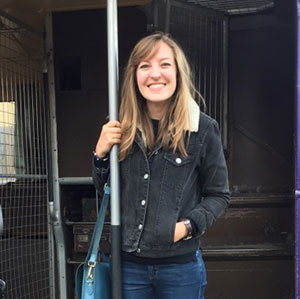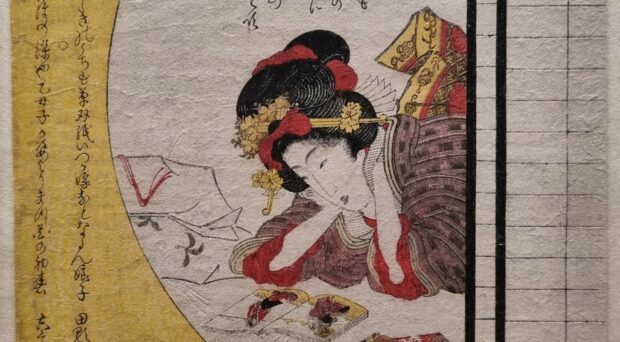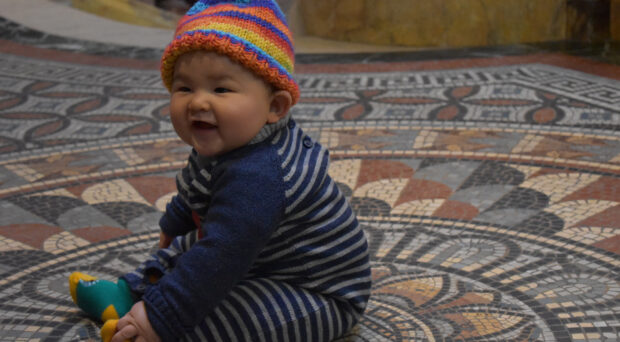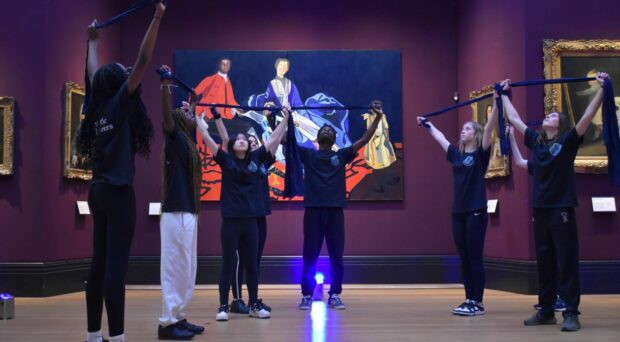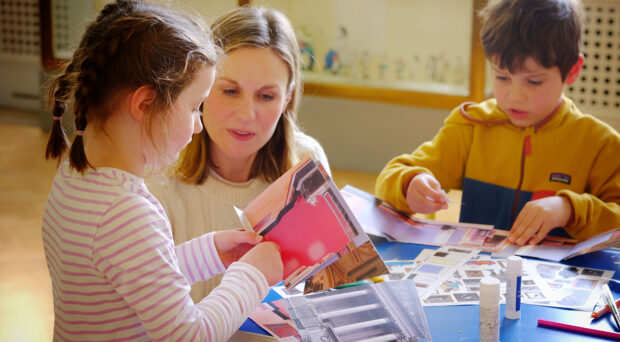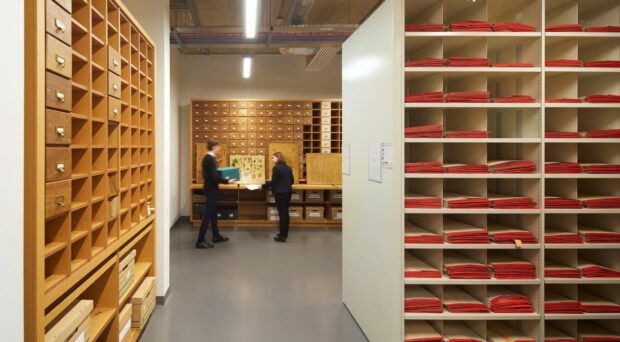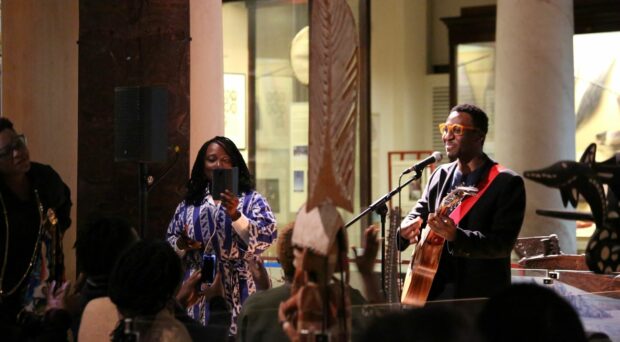In summer 2021, still facing the challenges of reopening our sites, maintaining social distancing and working with schools as they regained confidence in running school trips, we explored how to run a Bronze Arts Award with secondary school students using a blended model – namely, a mixture of online and in-person engagement.
Each year the University of Cambridge Museums (UCM) runs projects with our strategic partner schools to support Year 8 students in achieving a Bronze Arts Award. In 2020-2021, delivery of these projects was severely delayed by Covid-19 but by the summer term, with both schools and museums open once again, we were keen to find a way to run these projects, particularly in an academic year in which students had already missed out on so much.
Following conversations with two of our partner schools in East Cambridgeshire and Fenland, Soham Village College and Cromwell Community College, we agreed to run a seven-week project for each school in which we’d work with a small group of targeted students once a week –the aim was not only for students to achieve a Bronze Arts Award, but also to motivate them in their study of the Shakespeare text they were studying in English lessons. To support our schools at a time when most schools were wary of leading school trips, we proposed delivering a blended model for the project which would involve one or two visits to our collections, but would mostly take place in school through a combination of visits from museum staff and sessions via Zoom.
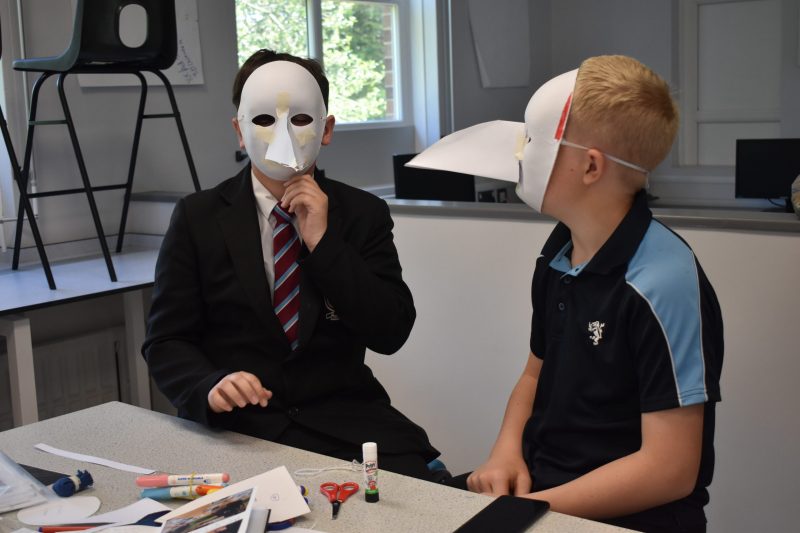
While excited to start this strand of our widening participation work up again, I had a few reservations. The relationship we’re able to build up with the students over the course of a project is important in developing their confidence and encouraging them to feel that our collections are places where they feel welcome. Additionally, being able to see the students regularly in-person allows me to look through their Arts Award portfolios; it helps to support them in completing all the work they need to achieve the Award. I wondered if beaming into the students’ classrooms via Zoom would make these things more difficult. I needn’t have worried, the students quickly got to know and trust us, and engaged enthusiastically during online sessions. Through a bit of careful planning, we were also able to keep an eye on the students’ portfolios on the occasions we met in-person.
Running these two Arts Award projects was not without its complications. While one school was able to bring the students to visit our collections, the other was unable to run school trips that term. For the students who could not visit, we faced the challenge of recreating that experience through virtual means only. Teaching online forced us to think about making our sessions as interactive as possible to avoid PowerPoint fatigue and to incorporate breaks from staring at the screen. We were careful to plan activities such as games, quizzes, group work and art-making into every online session, and for each online session we delivered, we sent a pack of art materials, worksheets and images of key objects to the school.
We’d like to say things always ran smoothly but this was a bit of a learning curve for all of us – museum educators and teachers alike. Occasionally we would fall foul of IT not cooperating or packs of materials getting lost in the post before they reached the teacher. However, we quickly learnt to keep calm and think on our feet when things didn’t go to plan. We had anticipated that Covid-related absences from school might also make the project difficult, especially towards the end of term when large numbers at one school were self-isolating; however, we did our best to support students in catching up on any crucial work they’d missed.
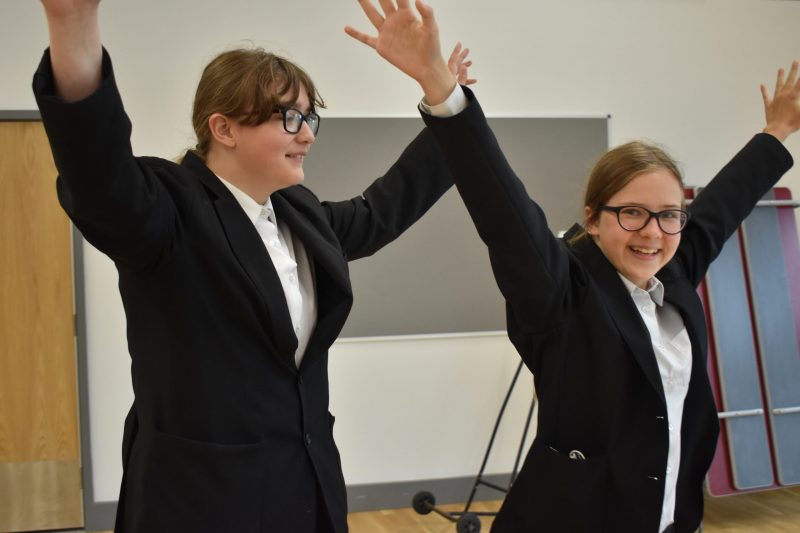
Soham Village College students made a visit to the Fitzwilliam Museum and another to the Cambridge University Botanic Garden, where they enjoyed a session on Tudor poisons and cures. While Cromwell Community College were unable to visit Cambridge, we did manage to deliver three online sessions and four in-person sessions at school, including a drama workshop which explored “Romeo and Juliet”. Students at both schools were able to learn about the Tudor context of their Shakespeare text through creating their own portrait miniatures, learning about Tudor heraldry with the Fitzwilliam Museum’s Founder’s Library, and planned a performance of the play using objects from our collections as inspiration for costumes, props and casting.
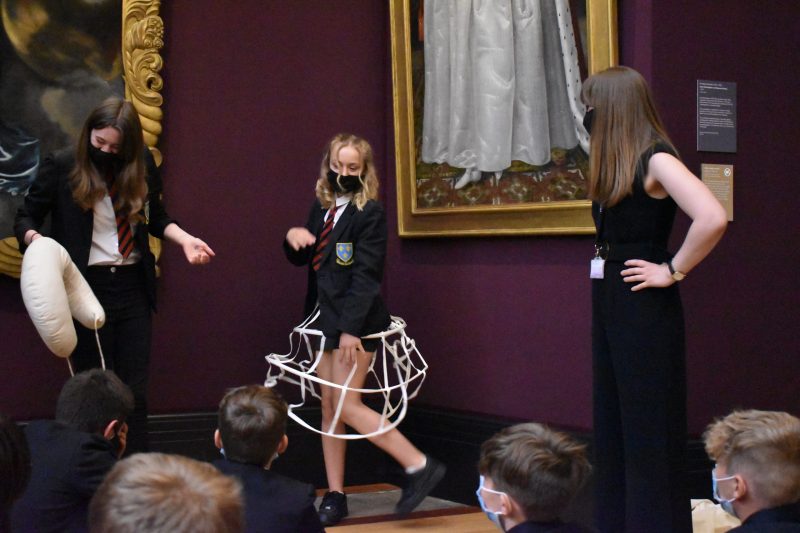
At the end of the project, we were delighted that 26 students across the two schools gained a Bronze Arts Award. A further three students, who missed some sessions and weren’t able to complete the work required for a Bronze Arts Award, achieved a Discover Arts Award certificate – and we’re still working with these students to finish the work for their Bronze certificate.
What did our young participants have to say? Across the two projects, 70% of students agreed or strongly agreed that the project was inspiring and 74% agreed or strongly agreed that they felt a sense of achievement having completed the Arts Award. Here, the students describe the Arts Award projects in their own words:
“Arts Award project was amazing!”
“I can talk more in class now.”
“A fun way to develop, learn and team build with other students.”
“Super fun and free to be as creative as you want.”
This project taught us a lot about the advantages and disadvantages of online delivery. We developed creative ways to engage students with our collections without them setting foot through the doors of our museums. This is valuable learning and may well be useful in engaging with schools which are too far away to visit us in person, or to visit with the frequency one of our Arts Award projects would usually involve. On the other hand, I felt very much that the school which was not able to visit missed out a little; we were not able to give those students the chance to develop confidence in our unfamiliar spaces, to explore our galleries and discover objects which piqued their own interest, or to encounter real objects up close.
At the time of writing, we’re part-way into a new academic year and we’re excited to be planning and delivering more Arts Award projects with our strategic partner schools. This year, we’re pleased to have been able to plan for projects to take place entirely in-person, both in our museums and in school. However, although we’re hopeful that life is slowly returning to normality, we’ll certainly find uses for the learning we’ve gained through trialling a blended model for Arts Awards.
With thanks to our fantastic colleagues at Soham Village College and Cromwell Community College for all the energies they put into making sure students could take part in this opportunity in a particularly demanding academic year.

